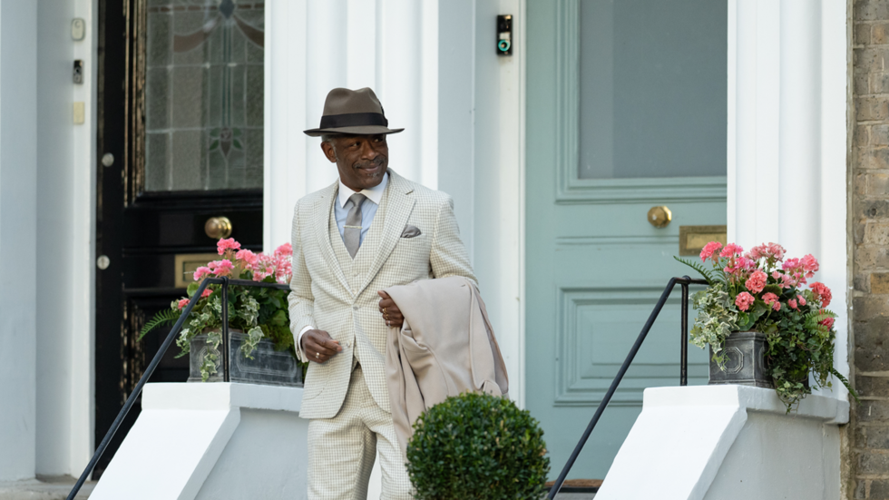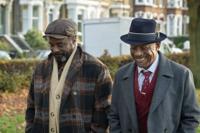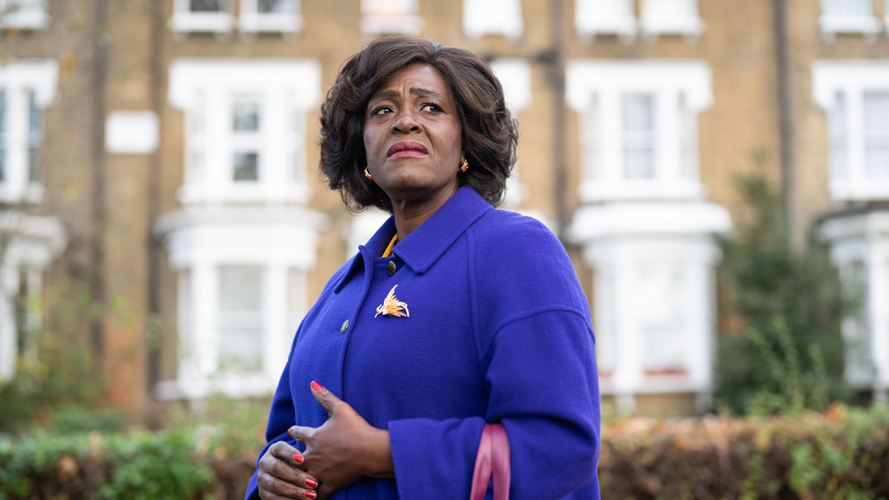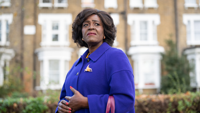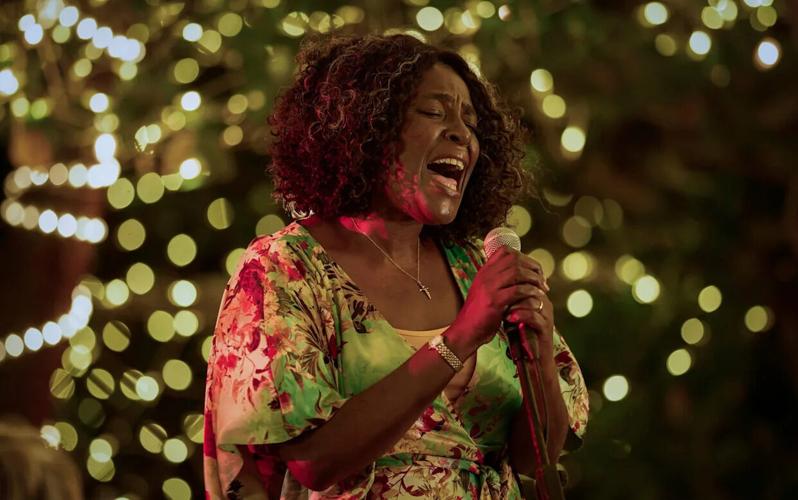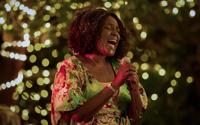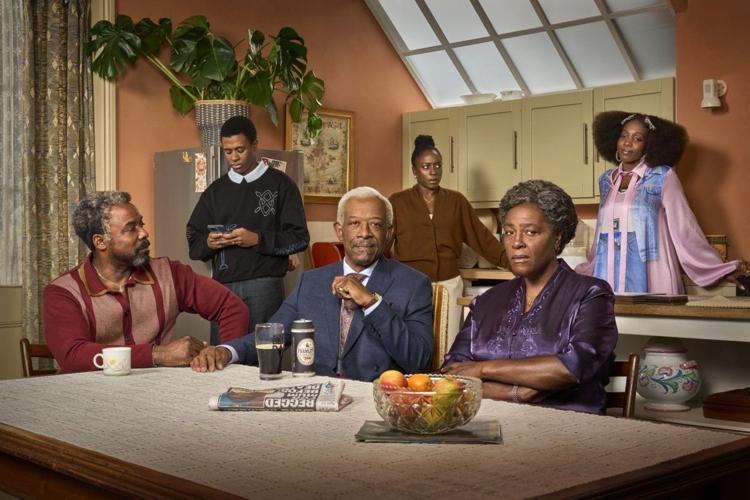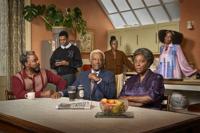It's an adaptation of the 2013 novel by Bernardine Evaristo, the first Black woman to win the Booker Prize, one of the top literary awards in the United Kingdom. She did so in 2019. Evaristo is a British-Nigerian whose novel explores the life of Britain's older Caribbean community through the experiences of a septuagenarian who is a closeted homosexual. Afro-British filmmaker and Oscar-winner, Steve McQueen did a TV series about the UK's younger Caribbean community called Small Axe (2020), although his series might include the same generation as the characters here. In the United States, there haven't been that many programs about Black queer characters. Noah's Arc (2005) was the first and centered itself on Black men who were openly gay. The DL Chronicles (2007) centered itself on Black men who were closeted. This series, directed by Hong Khaou (Monsoon and Lilting), feels as though it could be a part of The DL Chronicles but as if directed by Steve McQueen.
Lennie James (Genius and The Walking Dead) stars as Barrington Jebidiah Walker, aka "Barry," a 74-year-old living in London. He's from Antigua, a Caribbean island where he met and married his wife of decades, now 50 years. He has two adult daughters and a teenage grandson about to go to Oxford University. Barry has harbored a secret for those 50 years. That secret is that he's been having an affair with his best friend, his "male" best friend. He's reached a point where he's tired of hiding it. He wants to leave his wife, as well as possibly tell her the truth.

Ariyon Bakare (His Dark Materials and Doctors) co-stars as Morris De La Roux, the aforementioned best friend of Barry. He's also from Antigua. He fell in love with Barry when they were teenagers on the island, which was probably in the 70's or 80's. Morris fled to the UK when their secret was threatened to be exposed. He married a woman and tried to move on, but Barry followed him with his own wife. Barry and Morris continued their affair in secret into their elderly years. In the present, Morris is no longer married. He's content with being the "best friend" or "uncle" in public or when they're around other people. Yet, he's Barry's lover and the promise of Barry finally coming out, even as an old man, has Morris anxious but also excited for a life that he's always wanted but could never have.
The series takes place over the course of some days, as Barry makes the decision to come out the closet at 74. However, things keep happening to delay him telling his wife. He's a very educated man, capable of quoting Shakespeare at the drop of a hat, as well as chapter and verse of many other literary authors. He's eloquent and whip-smart, but his fear of saying he's gay has him at times stumbling and at a loss for words. It has themes that echo Brokeback Mountain (2005) or even the more recent Fellow Travelers (2023), minus all the politics.

Khaou's adaptation remains rather domestic, meaning limited to what goes on in a person's household. It truly is more akin to The DL Chronicles, but if that show ever had an elderly edition. What's outstanding is that it focuses on a romance between people who are over-the-hill. Most romances, putting aside whether it's straight or gay, are about people typically under the age of 40. Some Hollywood films have pushed that line, but Barry and Morris are over the age of 70. Seeing a romance between septuagenarians or higher is even more rare, unless it's in a comedic context, such as The Golden Girls (1985), Vicious (2013) or Grace and Frankie (2015). Here, it's not a joke. Khaou also doesn't shy away from depicting sex between the elderly, Black men.
Sharon D. Clarke is a Tony Award and Grammy nominee for her role in the 2021 Broadway revival of Caroline, or Change (2004). Here, Clarke plays Carmel Walker, the wife of Barry. She also met and fell in love with Barry in Antigua. She had no clue he was gay. After decades of marriage, she does suspect that he's cheating on her. Yet, she assumes that he's sleeping with other women. She's always felt a distance them, but she loved him. Plus, she's from an older generation where it was expected for a woman to marry a man, any man, as soon as she could and did all the traditional things.

Carmel could have been a lot like many of the women in these narratives, such as Brokeback Mountain and Fellow Travelers. She could have just been the poor, suffering wife, which she essentially is. However, there are some paths that seem taken from the book. The series has a bit of a Rashomon (1950) quality. Yes, Barry is the protagonist, and narrator, whose thoughts we hear telepathically, but Barry disappears, so that we can get the first-person perspective or point-of-view of others in Barry's life, namely his wife and his two daughters. We peak into all three of their private lives. It adds depth to the overall narrative. Some might think it detracts from more of the Black, queer, middle-age romance.
At the end of the day, this narrative is a coming-out story. If one has been tapped into queer cinema and such representation in TV, the dominance of coming-out stories is very overwhelming. At times, there feels as if there are too many, but often the perspectives of the women are not as fully examined, as this series provides. Clarke did get a BAFTA nomination for her work here. Enough material here also provided James and Bakare with wins at the BAFTA or the 71st British Academy Television Awards in May 2025.

Rated TV-MA.
Running Time: 30 mins. / 8 eps.
Available on BritBox.


